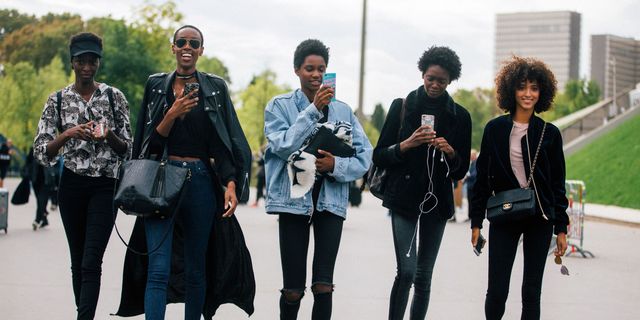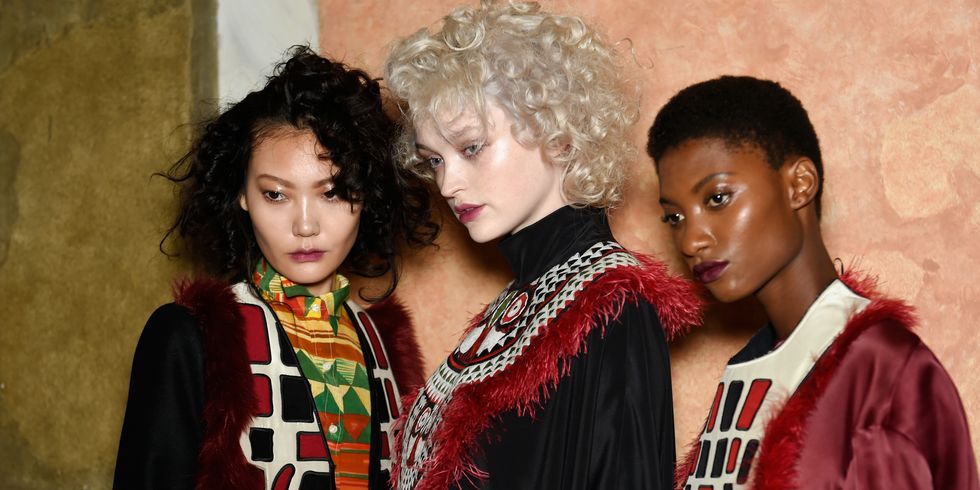Recently, there's been more than a few horror stories circulating about how models are being treated. Or, more often than not, mistreated.
Industry whistle-blower James Scully published a controversial post on his Instagram.
The fall-out of lead to Balenciaga releasing this statement:
On Sunday, February 26th Balenciaga took notice of issues with the model castings carried out on that day. The house reacted immediately, making radical changes to the casting process, including discontinuing the relationship with the current casting agency. Additionally, Balenciaga sent a written apology to the agencies of the models who were affected by this specific situation, asking them to share it with them. Balenciaga condemns this incident and will continue to be deeply committed to ensure the most respectful working conditions for the models.
But as horrendous as this sounds, it seems as though the awful revelation is just a drop in the ocean.
Models.com released an anonymous list of model's own stories and how they think the industry could, and should, change.
The pressure of feeling 'privileged' if they're even considered to walk the runway or work for certain designers and casting agents, means these girls are expected to be grateful for even for the worst treatment.
In the modelling industry a large part of successfully getting work is based on word of mouth and a model's reputation of how easy they are to work with, which means if a model speaks out, they risk their whole career.
I got a semi-exclusive for an A-list show with an opening guarantee during my first season in Paris. When [the designer] found out I was transgender, something no one knows about to this day, they cancelled my booking; they somehow considered it a risk—that it would draw too much attention, something they thought would affect the brand negatively: A very doubtful decision, especially considering that I was [then] an unknown new face.
These anonymous statements prove how prolific many problems are.
For the first big show I walked, I waited about 17 hours for the fitting.
And that if you have any insecurities, the pressure of the job may trigger deeper issues.
The agency said that they loved me but wanted me to lose a little weight, and they gave me a month to do it and then resend digitals. And so I lost a lot of weight in a short time and just got obsessed with it after that. I became anorexic and was extremely underweight, passing out in rehearsals. After the month they never got back to me and my mother agent. Since then, my weight has fluctuated so much because of how poorly I treated my body.
As you would expect for any woman (or in fact, human), the mental health of these girls is an equally important part of being successful within their industry, but from these anonymous reports, it would seem that both their mental and physical health are being jeopardised.
I think a lot of models at the notoriously difficult agencies would agree with me when I say that fear is a huge motivation when it comes to how things work. As much as I have tried, I have never felt like I could demand respect out of fear of being demeaned and my worth being questioned.
The feeling that these girls are the lowest in the pecking order makes them vulnerable to various abuse.
I've experienced clients who think it's appropriate to make comments on your body: that makes me uneasy. I've experienced verbal and physical abuse from hair and makeup artists in the past.
Thankfully, in addition to the anonymous reports, other models have spoken out openly on the shameful way the industry treats them.
Fernanda Ly told the website:
I was once shooting a lookbook where the stylist, helping me dress, used this chance to feel my body up much more than necessary and continued to do so throughout the entire shoot. Countless times have I had to undress in undesirable public situations, but even now I can remember the disgusting feel of this man's hands tracing my body.
Sidney Gaston opened up too:
During London Fashion Week 2016, I felt dizzy and sick at a 90 minute static presentation: I went off the stage and told the casting director that I can't keep going because otherwise I might faint while another model was throwing up three feet away from me. She told me I have to go on-stage otherwise I'm not getting paid. I wasn't paid anyway.
Sites like this Models.com, as well as Instagram pages like Shit Model Mgmt, which attempts to find the humour in the tiring experience of being a model, show there is hope.
Additionally, The Model Alliance is working to lift the lid on the industry's systematic abuse of models.
Good progress, but there is still a long way to go.
Daisy Murray is the Digital Fashion Editor at ELLE UK, spotlighting emerging designers, sustainable shopping, and celebrity style. Since joining in 2016 as an editorial intern, Daisy has run the gamut of fashion journalism - interviewing Molly Goddard backstage at London Fashion Week, investigating the power of androgynous dressing and celebrating the joys of vintage shopping.














